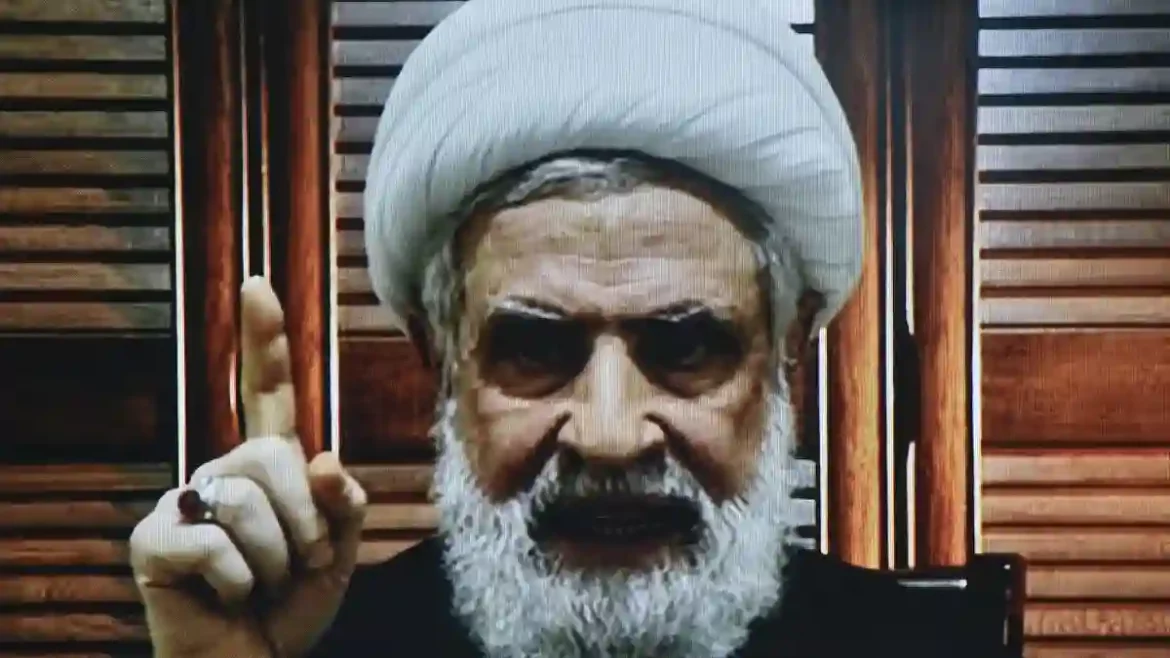As tensions in the region escalate, Hezbollah has issued a stark warning to Israel, asserting that they are fully prepared for war.
This announcement comes amid reports that Israeli forces are gearing up for a potential ground invasion of Lebanon.
Israeli special forces have already initiated operations inside Lebanon, targeting Hezbollah’s infrastructure, particularly weapon sites and command centers.
The Israeli military’s intention is clear: to dismantle Hezbollah’s operational capabilities following the recent loss of their longtime leader, Hassan Nasrallah.
Israeli Forces on the Move
Israeli Defense Forces (IDF) are amassing tanks along the northern border, indicating an impending incursion into Lebanon.
Despite pressure from allies urging a de-escalation of hostilities, the situation remains tense.
Lebanon, in response, is reportedly deploying its army to the southern border, marking a significant increase in military readiness on both sides.
Israel insists that its conflict is solely with Hezbollah and not the Lebanese population.
Since the outbreak of the Gaza war last October, Hezbollah has retaliated against Israeli airstrikes by launching rockets into northern Israel.
The ongoing hostilities have displaced around 60,000 Israelis from their homes, prompting Israel to declare its commitment to eradicate Hezbollah from southern Lebanon.
Leadership Shake-Up in Hezbollah
In a major development, an Israeli airstrike recently targeted Hezbollah’s headquarters in Beirut, resulting in the confirmed death of Hassan Nasrallah.
This loss has left the group scrambling to appoint a new leader, intensifying calls for retaliation against Israel.
Allies of Hezbollah are advocating for a ceasefire to prevent the conflict from escalating into a wider regional war.
However, Israel appears determined to exploit its military momentum, having recently eliminated numerous officials associated with Hezbollah, Hamas, and Iran.
Civilian Impact and International Reactions
As the conflict rages on, casualties continue to mount. Reports indicate that over 1,030 individuals, including women and children, have been killed in Lebanon since Israel intensified its military operations against Hezbollah.
Recent airstrikes have caused widespread destruction, including significant damage to residential areas in Beirut.
The situation is dire, with more than one million people displaced in Lebanon, adding to the humanitarian crisis in the region.
The United States and other international players have urged restraint, emphasizing the need for a diplomatic solution to prevent further escalation.
President Joe Biden has conveyed concerns about an all-out war in the Middle East, warning Israeli Prime Minister Benjamin Netanyahu against actions that could lead to a broader conflict.
Leadership Transition and Future Uncertainty
In the aftermath of Nasrallah’s death, Hezbollah’s deputy chief, Naim Qassem, has vowed to continue resisting Israeli forces, asserting that the group is ready for any ground confrontation.
Qassem has stated that Hezbollah will select a new leader promptly, with a focus on unity and clarity in their choices.
The question of who will succeed Nasrallah remains crucial as the group’s future leadership dynamics are still uncertain.
Hashem Safieddine, a key figure within Hezbollah’s political structure, is seen as a potential candidate, but the decision-making council will need to convene to make an official selection.
The regional and international implications of this transition are significant, particularly as Hezbollah navigates its response to Israeli actions.
Preparing for a Potential Ground Invasion
With Israeli forces gathered at the border and ongoing airstrikes, the possibility of a ground invasion looms large.
IDF officials have communicated that the recent aerial bombardment aims to pave the way for ground troops if necessary.
The situation echoes the last major conflict between Israel and Hezbollah in 2006, which ended in a stalemate after 34 days of intense fighting.
As the region watches closely, the question remains: what will be the next chapter in this escalating conflict?
Both sides are preparing for what could be a long and arduous struggle, with far-reaching consequences for Lebanon and its neighbors.
Mine Crypto. Earn $GOATS while it is free! Click Here!!
